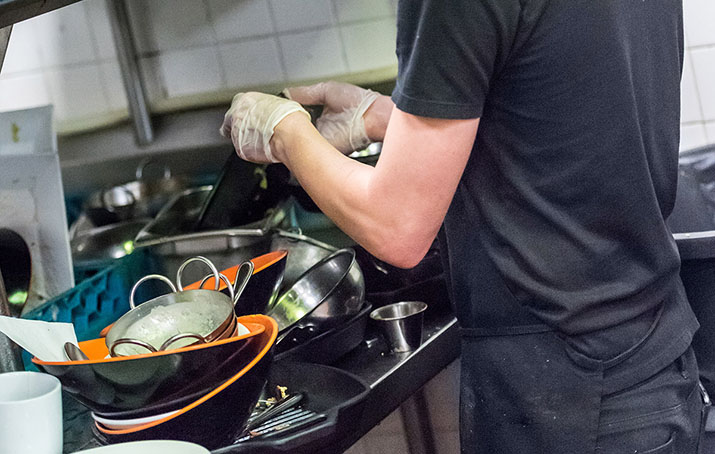Changes to labor trafficking law help BCA protect Minnesotans
Sept. 11, 2023

Imagine: You're offered a job that sounds too good to be true. You take it, but before you start, your boss explains that there is required equipment you have to buy upfront that costs thousands of dollars. When you explain you can't pay, he says he'll loan you the money.
You show up to work and when you get your first paycheck, you notice that you have earned almost nothing. Your boss says that interest has been accruing on his loan and he's not sure when you'll finally pay off the equipment he bought you. He pressures you to turn over your car title as collateral since he says he's worried about you not paying back the loan. He expects you to work for free until he decides your debt is clear.
This is a crime in Minnesota and one our Bureau of Criminal Apprehension (BCA) now has more tools and ongoing, dedicated funding to put a stop to thanks to changes approved by the Minnesota Legislature earlier this year.
Minnesota's legislators updated the state's human trafficking law to further protect Minnesotans from labor trafficking, including situations where a trafficker coerces a victim with a real or alleged debt, effective Aug. 1. The updates create enhanced penalties for labor trafficking that results in death, continues for an extended period or causes great bodily harm.
Additionally, the Legislature made technical changes to the definition related to labor trafficking crimes — clarifying how debt could be used to trap someone in a job and making it a crime to use serious psychological, economic, or reputational harm to force someone to work — while also aligning the definitions in the sex trafficking statutes with the definitions in the labor trafficking statutes.
Legislators also approved ongoing dedicated funding for the Minnesota Human Trafficking Investigators Task Force, which was established in 2018 to bring Minnesota's most experienced investigators and prosecutors together to combat human trafficking in all its forms.
The National Human Trafficking Hotline received 1,386 reports of labor trafficking or trafficking that involved both labor and sex in 2020. These reports involved 4,214 victims. Worldwide, experts believe there are more situations of labor trafficking than sex trafficking, but there is much wider awareness of sex trafficking in the U.S. than of labor trafficking.
You may think of immigrants — documented or otherwise — when you think of likely victims of trafficking, but it's a much wider scope. Victims could be your coworker, your neighbor or even your friend. Human trafficking isn't just someone else's problem.
The top risk factors for labor trafficking are:
- Recent migration/relocation
- Self-reported economic hardship
- Unstable housing
- Criminal record/criminal history
- Substance abuse concern
When human traffickers exploit their victims, they don't always use violence. Many victims are trafficked by an intimate partner, friend, or even parent or guardian. These traffickers often use deception, fraud, manipulation or coercion to recruit and control their victims.
According to 2020 data from the National Human Trafficking Hotline, labor trafficking most often occurs at the hands of someone the victim knows.
- 69% were recruited by a potential or current employer.
- 15% were recruited into trafficking by a member of their own family.
- 5% by an intimate partner or marriage proposition.
If you suspect you or someone you know is being exploited for their labor, contact the BCA tip line at 651-793-7000 or
bca.tips@state.mn.us.

